Camp Culinary Essentials
Camp Culinary Essentials
Pondering the motivation for modernizing daily human experience through the ages is interesting to say the least. No doubt the innate longing to behold what would lie beyond the next hill, mapping the flow of rivers and streams, or following the migrations of wild game carried our ancestors throughout the continental crust of our planet. But one thing has always fueled our progression- the pursuit of easier living.
This of course can be seen in countless facets of modern life, and one realm of advancement that has been around since the first successful campfire is preparing food. It didn’t’t take long for kitchens to advance from the days of stone hearths to wood fire stoves, gas ranges and eventually to microwaves and convection ovens. What once required hours of preparation and cooking time can now be accomplished in a two minute zap in the microwave. To live without this level of convenience would almost seem like a legitimate hardship, but when we decide to set up a campsite for a weekend it is the old time romance of a few days of primitive living that we want to flirt with. And this means we will need to trade the microwave for matches when it comes to cooking.
The Heat Source
Only having one plan when a second one is required is a bad situation. For our ancestors this could mean being caught on the wrong side of natural selection. For our weekend campout it may mean fast food will have to salvage our menu. Cooking over an open fire is the preferred method of cooking while camping- there is just something about the work that goes into gathering firewood and cutting up kindling and shaving up tinder that makes the food more satisfying, but if the forecast is calling for wet weather an alternative heat source is going to be needed, and that’s where a propane grill or stove can really save dinner.
After setting up the tent, a forward thinking camper would also rig up a tarp over an area that would allow for enough dry space to cook in the rain- this is where the propane fueled heat can be used. When the weather breaks and a fire can once again be enjoyed, firewood that was stored out of the rain will be incredibly helpful to get the flames flickering again.
The Cookware
There is a fine line between camping and glamping, and that line is established by the amount of gear that the participants haul along with them. If a camper is seeking to set up a more traditional campsite they will only need a few key pieces of cookware: a grill grate, a cast iron pan, aluminum foil, a tin camp mug, and a good knife.
A grate with attached folding legs is a practical choice as it allows for adjusting the height of the grate above the flames depending on the size of the fire or the thickness of the cut of meat that is being roasted. The grate also serves as a good platform for the cast iron pan if the campsite chef wants to fry some potatoes, veggies, or flapjacks.
The aluminum foil serves as a great container for cooking fish or vegetables by burying them in the hot coals at the bottom of the fire pit, and helps lock in the moisture as the food cooks. A light coating of butter will add some flavor and help keep the food from adhering to the foil while it cooks. The foil also can serve as a stable enough surface to eat off of in lieu of a plate, and can even be balled up and used as a grill scraper to remove the buildup of soot and food remnants.
Keeping it Clean
Although roasting and frying are the preferred methods for cooking over a campfire, sometimes there is a need to boil water for oatmeal, coffee, or some drinking water. A metal camp mug would work well for this when placed on the grill grate. The trick is having a well-insulated glove or rag to get the hot mug back off grill once the water is boiling.
A sharp, 3.5 – 4” fixed blade knife or folding knife is an absolute necessity for cooking under the stars. From cleaning fish to cutting open food packaging, a knife is a camper’s best friend. Other uses for this tool would include cutting some roasting sticks, or even using it to fashion some dining ware out of a stout branch.
The Food
A watched pot never boils… and an empty one doesn’t either. The most important aspect of cooking at the campsite is actually having something to cook. This seems simple enough, but knowing what exactly to bring can be tricky. If a day of fishing is scheduled then planning to eat some fresh fillets would be a great place to start.
The only problem is- there is no guarantee that there will be any fish for the grill. This is why packing a nonperishable alternative food item is a necessity. Venison or Beef jerky is a great option to turn to in this situation. Some other wise rules to consider when setting up a weekend menu include packing food that’s low maintenance, at least fairly nutritious, and easy to cook over a fire. Potatoes, cans of beans, bacon, eggs, pancake mix, and oatmeal are several options that work well. The most perishable items should be eaten on day one, and anything that is best cooked over an open fire should be prioritized for fair weather days.
The Final Touches
Although early humans were probably content to just have something to cook over the fire, delicious food can really take an ambient dinner around a campfire and push it over the top- which is why packing some basic seasoning is well worth the effort. Combination seasonings like garlic salt, or Greek seasoning can eliminate the need to pack an abundance of seasonings, and still offer the comfort food flavors that make nearly every camper a happy one.
Other flavors that are simple to include in the meal plan are butter as well as some cooking oil for frying. A butter substitute that lends itself perfectly for camping is clarified butter, also known as ghee. This buttery food doesn’t require refrigeration and offers a higher smoking point for cooking over flames. These lipid based foods not only add a lot of taste, but will also help replenish the energy burned during a long day of hiking, fishing or biking.
Camping done right finds the delicate balance between inconvenience and fun. Sleeping in tents, breathing fresh air, unplugging from technology, and eating well around the campfire are all key components to getting the most out of a weekend in camp.
By Kent Boucher
June 2021


